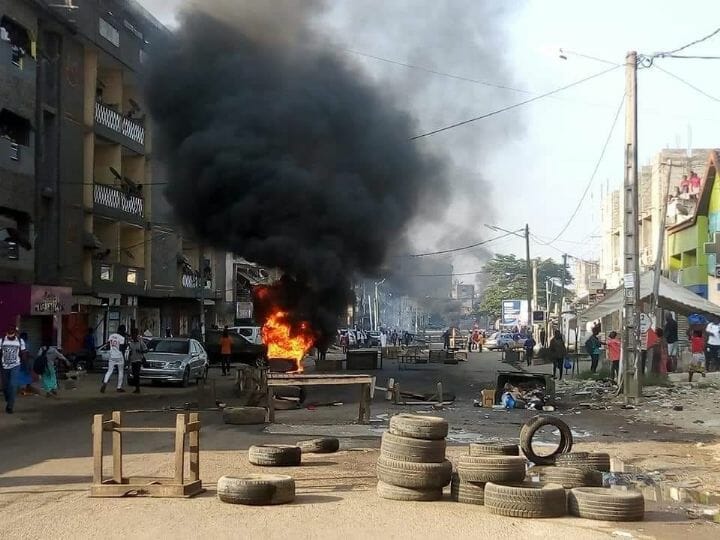Ivorians to vote for president tomorrow amid heightened tension
BY LOU SIFA

It has been a tense three months in Cote d’Ivoire since President Alassane Ouattara announced his intention, back in August, to run for a third term that the opposition parties deem illegal and called for “social disobedience” that has cost dozens of lives.
Today, Friday, tension was reported in Yamoussoukro, the nation’s capital, by several witnesses who spoke to local news organizations about the main south-north road that crosses the city being blocked by protesters with burned tires. The police stepped in to disperse the protesters, but the latter reappeared to impede traffic on the side roads. Most residents, the witnesses report, stayed home, and businesses were closed.

Tension in Yamoussoukro, a city that had witnessed violence earlier in the past several weeks, was only the latest case of demonstrations that have shaken the nation since the president announced his intention to run for a third term. According to the Ivorian minister in charge of security and civil protection, Gen. Vagondo Diomandé, who appeared on national television last weekend, 16 people lost their lives and 67 others were wounded during the outbreak of violence that shook Dabou, a town 50 kilometers from Abidjan, last Friday. Abidjan itself, the largest city and the nation’s economic hub, has witnessed consistent disturbances, with torched cars in several parts of the city. That is not to mention the hometowns of opposition leaders, notably the case of Bongouanou, the stronghold of opposition candidate and former Prime Minister Pascal Affi N’Guessan, that saw clashes between President Ouattara’s followers and pro-opposition demonstrators. The violence resulted in two deaths, with several homes, shops and restaurants—reportedly including the former prime minister’s home—burned down.
In addition to calling for “civil disobedience” which has led the disturbances of the past three months, President Ouattara’s two main opponents, former president Henri Konan Bedie and former prime minister Pascal Affi N’Guessan, decided three weeks ago to boycott the election, leaving the outgoing president to face light-weight candidate, Bertin Konan Kouadio, a 51-year-old farmer and former lawmaker who only secured 4% of the vote during the last presidential election.
Ouattara, 78, is seeking a third term in office after the Constitutional Council ruled on Sept. 14 that he could run even though the country limits the presidency to two terms. While Ivory Coast’s highest court didn’t provide an explanation for its decision, Ouattara had previously said that a new constitution adopted in 2016 wiped his slate clean.
For his part, in a lengthy presentation published on the website of abidjan.net, a major online news source in Côte d’Ivoire, one of the country’s leading constitutional scholars, Professor Martin Bléou, stated that President Ouattara’s bid for a third term does violate the constitution: “The president of the republic, who has received two mandates, one in 2010 and another in 2015, could have claimed the right to serve for a third term, or even run indefinitely for president, but only on one condition: the removal, or simply the non-renewal of the principle of term limit provided for in the 8 November 2016 Constitution.”
Cote d’Ivoire is an important country in Africa. The world leading producer of cocoa is also the economic engine of the 8-nation Economic and Monetary Union of West African States. No African country, however small their weight on the economic scale of the continent, should be drawn into chaos. However, when it comes to a heavyweight like Cote d’Ivoire, there is more reason for concern.
France, Cote d’Ivoire’s former colonizer and close partner, rang the alert, with President Emmanuel Macron inviting President Ouattara to postpone the election and engage in a dialogue with the opposition to clear the way for the young generation to run the country. But, according to diplomatic sources, the proposition did not sit well with the Ivorian president.
Earlier this week, in anticipation for the expected outbreak of violence, the U.S. embassy in Abidjan warned American residents and visitors in the country and advises caution.

